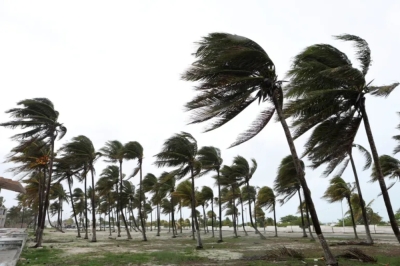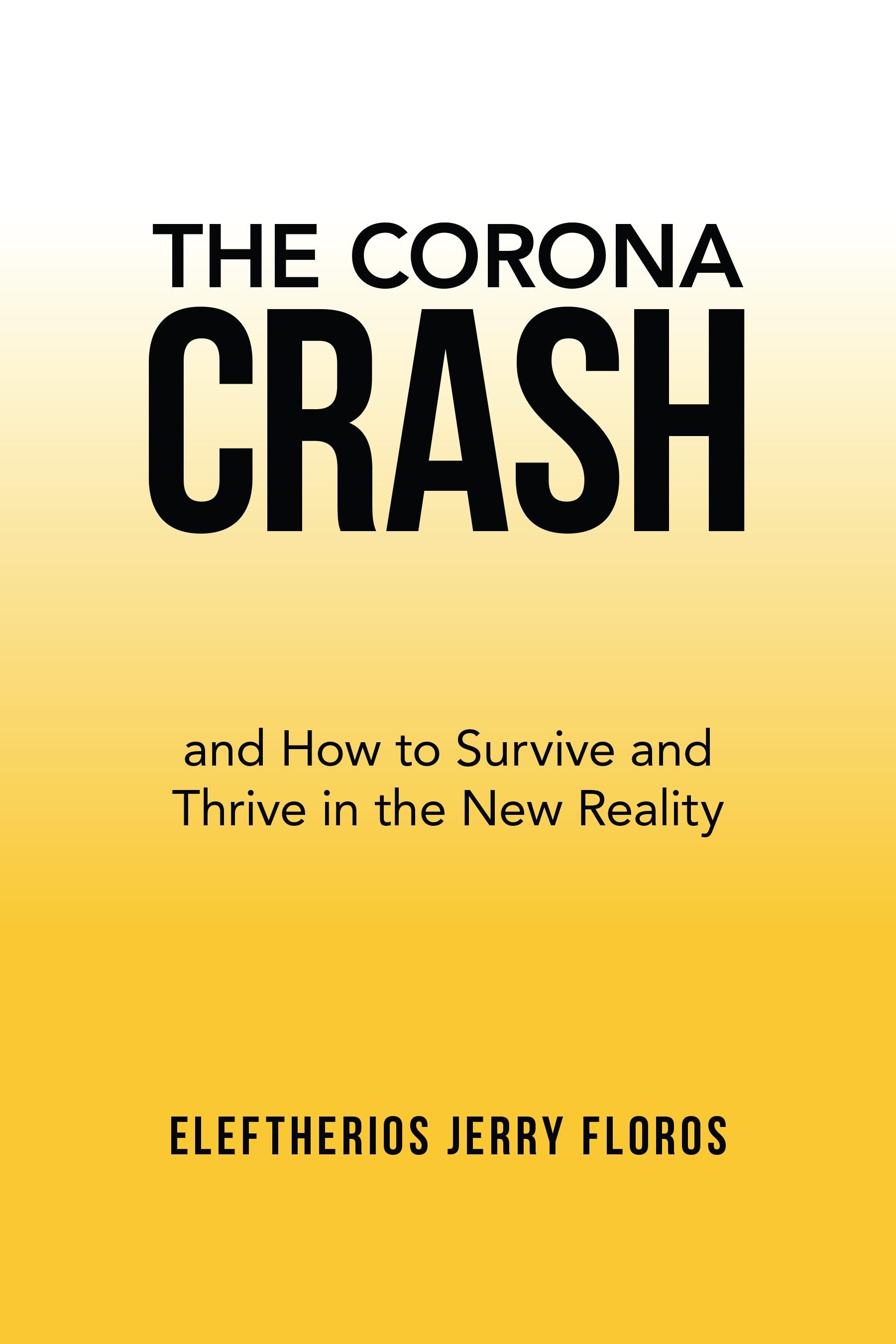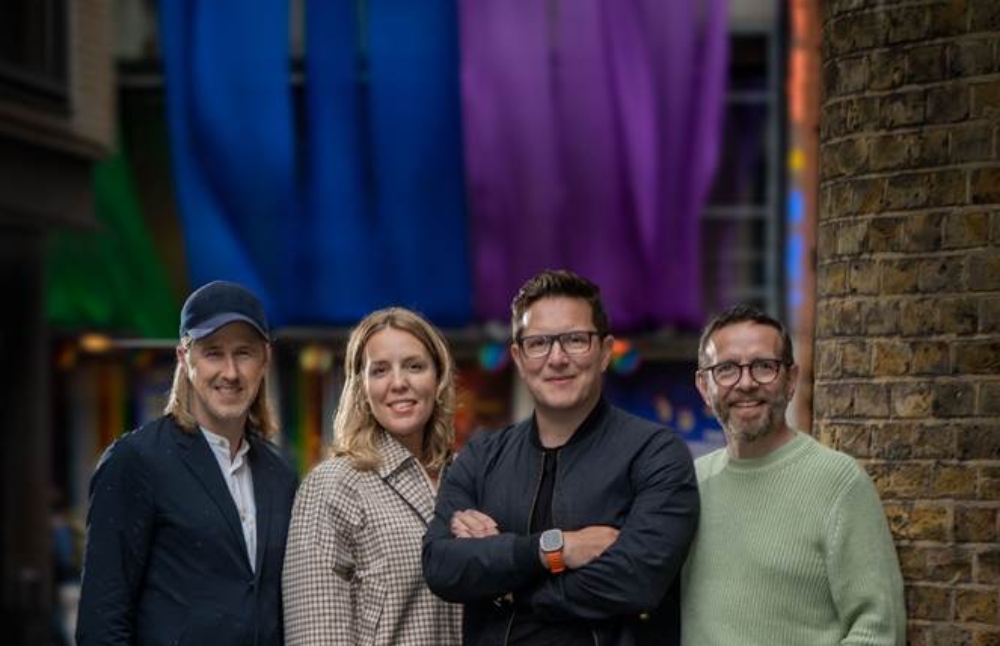
COVID-Fury and the Lockdown Tears: A Discourse on the Economic Implications of Lockdowns
Tears of Desperation
In November 2020, the British government reluctantly announced that the country would enter into a 3-tier lockdown system which would only last until 4 December 2020.
Anyone with a healthy dose of common sense, having followed real science and the dramatic developments of COVID-19 knew rather instinctively that it would never be possible to get out of lockdown within a short period of only 4 weeks. After all, the first UK lockdown in March of 2020 lasted longer than 3 months, announced by Prime Minister Boris Johnson in a televised address on the 23rd of March. Eventually, once the COVID-19 death rate declined and the infections curve flattened, that dreadful first lockdown officially “ended” on the 4th of July through the partial easing of lockdown restrictions. Everyone presumed this to be the end of it – the Corona pandemic - only to be shocked by the announcement of a painful but desperate second lockdown in November 2020.
And it’s understandable, no one, especially the British government wanted to spoil the Christmas holidays and dampen the festive spirits. Prime Minister Boris Johnson and Health Secretary Matt Hancock simply did not have the courage to announce to the British people that the second lockdown would last for months; it would have been political suicide for anyone making that announcement. But sure enough, not a week later after that dreaded announcement, another televised announcement followed that a “careful extension” of the second lockdown might occur. Before the echoes of that announcement silenced, London was forced to enter the unpalatable “economically-devastating-but-necessary” Tier 3 lockdown. And merely a week afterwards, London and the Southeast were declared Tier 4 and everything shut down completely once again. A devastating blow to the UK economy as a whole because the month of December - the most important month on the retail and hospitality economic calendar - was regretfully missed as all “non-essential” shops and businesses were shut down by law until further notice. With the COVID-19 spiralling out-of-control and currently overwhelming the NHS as many major hospitals are unable to handle the influx of COVID-19 patients, it is highly likely that on January 1st 2021, we might have to enter a (yet-to-be-defined) national lockdown Tier 5 - which most likely will include the closing off all schools - the same level as the first lockdown of March 2020. When that happens, Prime Minister Boris Johnson will most likely be repeating his previous televised draconian – but absolutely necessary - lockdown announcement “The instruction is simple – Stay at home”, and this time again, really enforced by Police and local authorities. Unfortunately and much to the dismay of the British people, the end of this second lockdown will definitely not be sometime January of 2021, but more likely April 2021. There’s a reason that Chancellor Rishi Sunak preemptively announced on December 17th that the furlough scheme would be extended for another month until end of April 2021 (instead of the end of March as originally planned) because the Chancellor of the Exchequer – and the entire British government – must have known the science and facts of that difficult decision. In the end, the government has the duty and responsibility to safeguard its citizens and infrastructure, that is, hospitals and the NHS (UK’s National Healthcare System). Everything else comes second, including saving the economy from collapse and resulting mass unemployment which will lead to a further deterioration of the economy and the wellbeing of its participants, the citizens of the United Kingdom.
Corona Super-Spreaders
The COVID-19 pandemic unleashed a humanitarian crisis of epic proportions and handicapped the entire global economy, necessitating lockdowns and forcing just about the entire world to a virtual commercial standstill.
The World Health Organization - in its official capacity of supervising and tracking health, disease and pandemics globally - announced early on the dangers of COVID-19 spreading across the world and the necessary actions governments must take to stop the spread and contain the pandemic. Unfortunately and regretfully, the response by most governments was first inaction and denial, followed by “cherry-picking” science and reacting with disproportional measures. Some countries went straight into full and hard lockdown such as New Zealand and others in a grudgingly slow and miscalculated response such as the USA, India and Brazil. In the meantime, the USA has unfortunately become the epicenter of the COVID-19 pandemic with a tragic 20 million cases and over 336,000 deaths (unconfirmed, as of end of Dec. 2020).
There are many to blame, but we only need to look at the facts and refrain from finger-pointing. Each and every one of us should their part, that is, social distancing and self-isolating when infected. That however, has not been the case because of collective complacency and misguided mindset, the thinking being, I am healthy and I should be fine. The sad fact is no one is immune and the COVID-19 virus does not discriminate, it attacks indiscriminately. No one could have ever imagined that world leaders such as US President Trump, UK’s Prime Minister Boris Johnson and French President Emmanuel Macron would contract the disease and get infected in an “ultra-protected” environment of health, safety and security, but it did happen. And with Donald Trump breaking the world record of COVID-19 recovery – checking into hospital on Friday, going for a joy-ride to meet & greet Trump supporters on a drive-by on Saturday and then checking out from hospital by the following Monday – made it look that he’s invincible as he conquered the virus in record time without any lingering complications. This impression was surely misinterpreted by the American people at large which experts say may have contributed to many not taking the COVID-19 pandemic serious enough to follow social distancing and prevention measures, resulting in the dramatic increase of infections and unnecessary deaths currently faced across the US.
Super-spreaders are unnecessary events and large places of congregation where viral infections spread easily – think White House lawn press conferences, political rallies, supporter demonstrations – where at present, the Corona virus can spread rapidly and uncontrollably (and which could be avoided if only everyone would just stick to the safe measures of social distancing). Schools, supermarkets and stadiums are also some of the places that become super-spreaders when social distancing is ignored and these venues become overcrowded.
Across the Atlantic, the UK government made the well-intended but fatally flawed decision to open all schools at the beginning of September 2020. Turns out the newly discovered mutated strain of the virus has a disastrous 69% higher transmissibility factor as well as that the younger generation have a disproportionally higher propensity of spreading the virus unknowingly and inadvertently. In other words, schools and universities became “super-spreaders” without anyone really knowing until now, when the pandemic has flared up and spiralled once again out of control.
Adding and exasperating the problem are the inconsistent and confusing public announcements by the UK government, resulting in people not knowing what the latest update is on the crisis and worse, not following the newly imposed health safety measures, apart from the billboard advertisements across the country. What the UK government should have done is simply deploy social media and the internet by creating an accurate and continuously updated website under the easy-to-remember name of “facemask.gov.uk”, informing the public on the latest crucial developments of an ongoing crisis.
Businesses were more proactive in many ways, by informing their customers regularly and by ensuring their establishments were relatively “COVID-safe”. Giant supermarket chain Tesco’s of the UK even installed innovative green/red traffic lights at its store entrances, clearly informing customers of when it was safe to enter the store in an orderly way after other customers had exited, keeping a calculated balance between entering and leaving customers in an orderly fashion and in doing so, avoiding overcrowding within.
Many other measures and temporary constructs (dividing screens, hygiene stations, contactless deliveries, etc.) were developed and deployed in a wide variety of commercial venues and transportation infrastructures; it’s only a matter of following the rules and properly enforcing compliance.
The Vaccine Rollout Rollercoaster
The Corona pandemic is a moving target - mutating strains, infection flare-ups, herd mentality, etc. – where some countries or demographics fare better than others but there’s no denying that the whole world is suffering collectively.
Vaccine or not, the only way out of this is social distancing and staying safe. We will not be “out of the woods” any time soon, only collective effort - with each one of us doing their part - in eradicating this dangerous virus will help us defeat this pandemic. In the meantime, let’s focus on the here and now, the reality of things and our mental well being as well as our finances.
One thing that stands out – in the good and the bad sense – is that the Corona pandemic has accelerated technology to “warp” speed. Experts say that the acceleration - which normally would be measured in years - has changed to months. One primary example is the development of the first COVID-19 vaccines which normally takes at least 10 years from initial testing to regulatory approval. This year we saw the “supersonic-fast” development of the first COVID-19 vaccines within 10 months using the highest tech currently available – artificial intelligence, quantum computing and data science.
Miraculously, not one but three vaccines were discovered and announced within a three week time-span in November 2020, which really makes us wonder how coincidental this all is…but anyways…Pfizer is now the most famous brand of the world, first with Viagra and now with the first approved COVID-19 vaccine. (please do read the medical instructions carefully before taking either…)

Copyright 2020 – Coca-Cola, Pfizer, Santa
Funny fact - Pfizer’s vaccine developer partner BioNTech happens to be addressed “An der Goldgrube” (Mainz, Germany) – which literally translates to “At the gold mine”, and indeed, vaccine gold it is.
For the less fortunate and more affordable, there’s also the Russian “Sputnik V” vaccine - endorsed by none other than President Putin himself who has not taken it yet, apparently waiting for “the right time” – but just be prepared for the cosmonaut launch into Soviet-era medical orbit of trial-and-error and hard landings.
The vaccine rollout will be a big challenge all on its own, especially the Pfizer/BioNTech that requires cold storage and transportation at minus -70 degrees Celsius (-100F) and all 3 vaccines must be administered in two doses, 3-4 weeks apart. The other two vaccines developed by Moderna and Oxford/AstraZeneca (and important to note the most economical of all 3 vaccines) are easier to transport and store, making it easier to distribute these around the UK.
On December 8th of 2020, British grandmother Ms Margaret Keenan was the world’s first recipient of the Pfizer vaccine at the delicate age of 91. Since then, over 600,000 people have been vaccinated (unconfirmed, as of Dec. 29th) but we are still very far away from vaccinating UK’s population of almost 68 million as we are just now near crossing the 1% percent mark. NHS, experts and the entire medical profession are already lamenting the slow rollout of vaccines and warning of the grave consequences of any delays that may unnecessarily cost the lives of 10,000s of patients. And with Brexit officially a reality on January 1st 2021 at which time border and customs controls will start, those delays may increase exponentially.
Certainly and without a doubt, the British government will do whatever in its power to ensure the flow of vaccines that will include contingency planning and dialogue at the highest level with its former EU partner nations.
Lockdowns and the Collateral Damage of a “Stop-and-Go” Economy
Experts have estimated that for every single day of lockdown, it costs the UK economy a staggering £2.1 billion (EUR 2.3/$2.8 billion). How this number has been calculated may be questionable and debatable as many factors come into play, however, it’s safe to say the economic damage runs into the billions and not millions. It follows that the UK government (and any government around the world for that matter) considers very careful every single lockdown day, taking into consideration all the facts and circumstances before deciding on any given lockdown timeframe. At the top of the decision-making process is deciding to try to strike a delicate “tight-rope-walking” balance between preserving health, that is, its citizens and wealth, its economy, with the latter being of secondary importance, however important this factor actually may be. The implications of this difficult-but-crucial decision-making is far reaching, it not only affects the economy but also the wellbeing of society, the mental impact of lockdown being a major and growing concern. And with every lockdown that follows, the much publicized and decried COVID-fatigue turns into outright COVID-fury.
On the economic side, these lockdowns result in a debilitating “stop-and-go” economy which does more harm than good. One day pubs and restaurants are open, the next day shut or take-out only. Shops and “non-essential” business establishments open and close like a revolving door, pushing customers to go online shopping instead of shopping in the high streets. The all-important retail and hospitality “footfall” – pedestrians walking past your shop, restaurant or business establishment – has fallen to a trickle, prompting many businesses to remain closed or just shut down permanently. Entire shopping areas, tourist destinations and business districts have adversely been affected and with each further lockdown, this situation becomes worse. Apart from the financial aspect of significantly reduced revenues, there are also the operational and marketing aspects concerned. Most retail and hospitality businesses (and many more industries that have been affected as well) work with production, distribution, advertising cycles and December is the definitely the most important month on the economic calendar where all of these cycles need to match perfectly in synchronicity. Stocks and supplies need to be in place before the start of the Christmas holidays, festivities and shopping spree, therefore this planning is executed well in advance, usually 6-12 months beforehand. It then comes as no surprise, the disappointment and devastation when retail and hospitality are shut down last-minute and on short notice, dealing a heavy blow to company finances and the economy in general. This in turn affects businesses in depleting their financial reserves until it’s no longer viable to operate a business, prompting a wave of business closures and bankruptcies.
The Mayor of Greater Manchester - the charismatic Andy Burnham – publicly addressed the problem facing the retail and hospitality industries in his city and secured extra and hard-fought government support in the £ billions, however it will not save Manchester for economic decline in the long run. And this applies to all other major cities and “economic concentrations” across the UK, including London. Over time, government coffers run out of money and heavy public borrowing becomes an even heavier burden on the UK economy.
To put things in perspective, according the latest available figures, the pandemic has cost the UK government in 2020 over £280 billion, public borrowing has jumped to £215 billion resulting in a public debt of £2 trillion (100.8% of GDP, as of Oct. 2020) and quantitative easing – Central Bank money printing – has reached an all-time high of £895 billion. More sadly, we haven’t even remotely seen the end of this public debt explosion as the second lockdown is currently in full effect and the inevitable related costs will only be tallied and felt sometime well into 2021. This is one of the most devastating economic downturns in UK’s history which will push the UK in the worst recession in over 300 years.
Light at the End of the Corona Path of Devastation
There are still difficult times ahead, but we are – slowly but surely – turning the corner on this global pandemic and its devastating impact on our lives, wellbeing as well as our personal finances.
For those who are better prepared for the coming year 2021, the prospects are looking quite good. Let’s not expect miracles, but “sure footing” on the road to a better year in which the world will return to the new normal and the global economy will bounce back from debilitating “stop-and-go” lockdowns.
And for the most of us, who faced adversity and hardship as a result of lockdowns and the devastating impact on our finances, there’s hope. As the German saying goes “die Hoffnung stirbt zuletzt” meaning “Hope dies last”, and that’s the only reason we need to keep up hope and resilience in our spirits.
The New Year 2021 will be challenging on many fronts – economy, unemployment, mental well-being - but through perseverance, discipline and our collective effort, we will defeat this pandemic and restore our lives to the new normal sooner than later.

The Corona Crash and How to Survive and Thrive in the New Reality is available on Amazon, Lulu and Barnes & Noble.
Trending
-
1 UK Tech Sector Secures a Third of European VC Funding in 2024
Azamat Abdoullaev -
2 France’s Main Problem is Socialism, Not Elections
Daniel Lacalle -
3 Fed Chair Jerome Powell Reports 'Modest' Progress in Inflation Fight
Daniel Lacalle -
4 AI Investments Drive 47% Increase in US Venture Capital Funding
Felix Yim -
5 The Future of Work: How Significance Drives Employee Engagement
Daniel Burrus





Comments